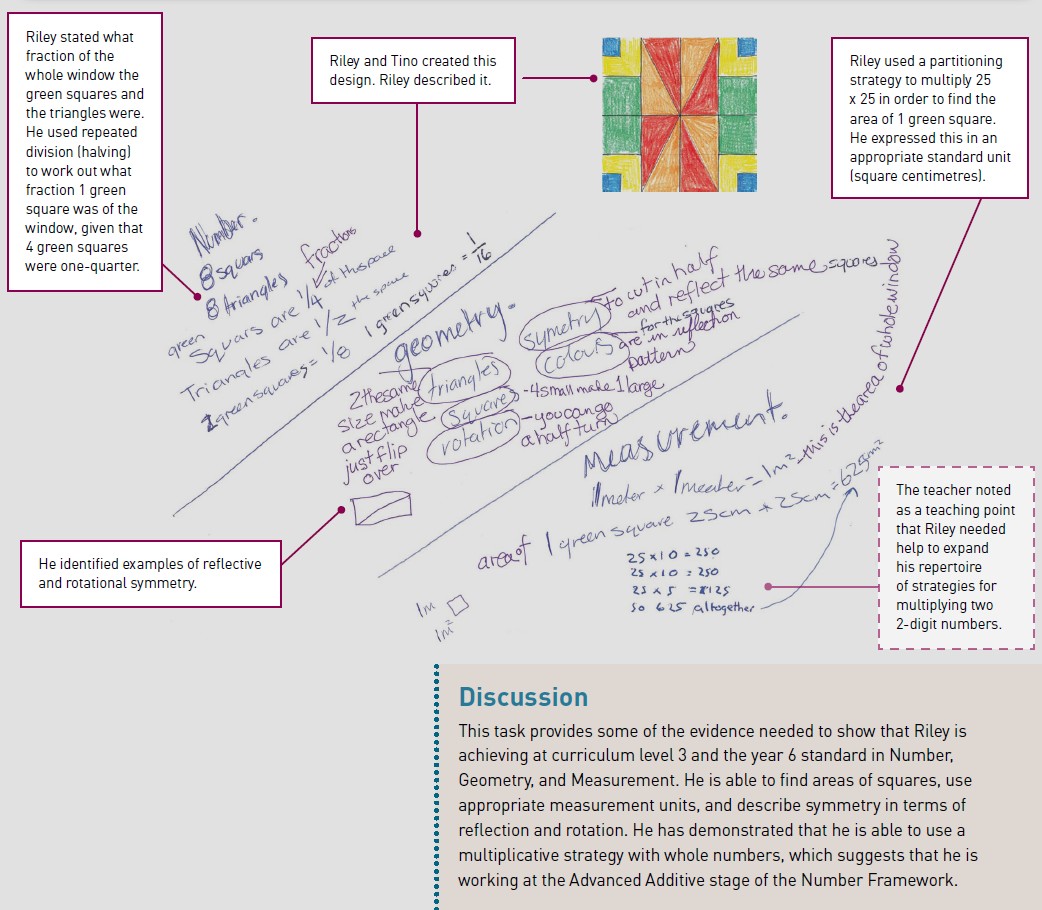
Stained Glass Window: Illustrating the year 6 standard
The task used in this illustration was part of a visual arts and technology unit in which students were asked to design a stained glass window. The students explored geometric shapes used in stained glass patterns and the technology associated with joining pieces of glass.
For this task, the students were asked to use a “maths lens” and to document aspects of number, geometry, and measurement evident in their designs.
The task relates to achievement objectives for Number and Algebra and for Geometry and Measurement from the mathematics and statistics learning area in The New Zealand Curriculum.
The Task
Stained Glass Window
- Design a stained glass window to fit a 1-square-metre frame.
- After you have designed your window, divide a piece of paper into three sections, Number, Geometry, and Measurement, and describe your design, using numbers, symbols, and mathematical language. For example:
- under Number, calculate the fraction that each shape is of the whole
- under Geometry, comment on transformations in your design
- under Measurement, calculate the areas of coloured glass needed for your design and the perimeter of the shapes (you can use this later to work out how much lead you will need).
Some features of students’ work used to make judgments in relation to the mathematics standards are described below. There is also an illustration of the year 7 standard and an illustration of the year 8 standard for this task.
| New Zealand Curriculum: Level 3 | National Standards: By the end of year 6 |
|
In solving problems and modelling situations, students will:
|
|
|
Number and Algebra
|
Number and Algebra
|
|
Geometry and Measurement
|
Geometry and Measurement
|
Hover over the image to zoom a section. Click on the image to enlarge it. Click again to close.

PDF of this task and Illustrations of the year 6, 7 and 8 standards (1.55MB)